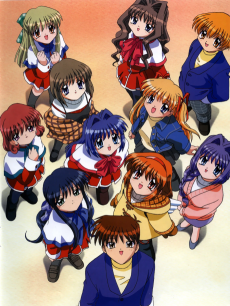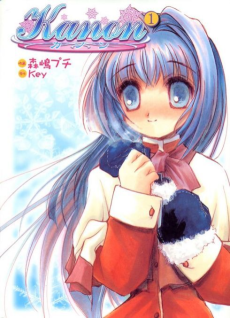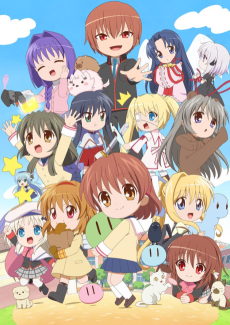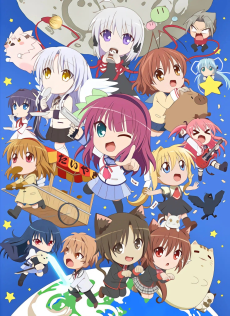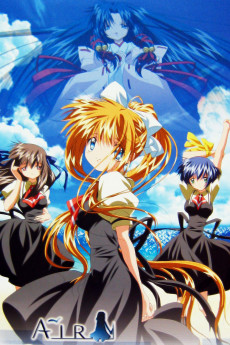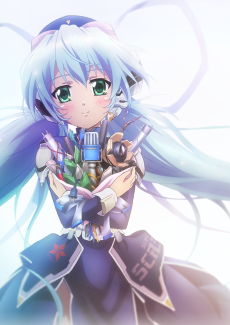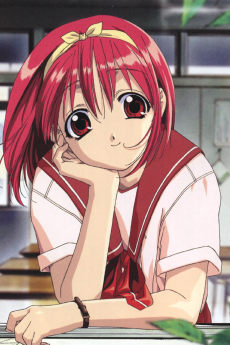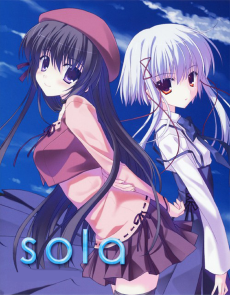KANON (2006)
STATUS
COMPLETE
EPISODES
24
RELEASE
March 15, 2007
LENGTH
24 min
DESCRIPTION
As a young child, Aizawa Yuuichi had often visited his cousin in the city. However, something drastic happened to keep him away for seven long years. Now, Yuuichi returns, his memories of those days are simply gone.
Settling into the wintry town, Yuuichi comes across several young girls, all of whom are connected to his past. As he befriends them and continues to interact with them, the long forgotten memories from his childhood begin to resurface...
CAST
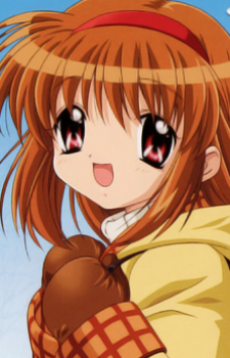
Ayu Tsukimiya
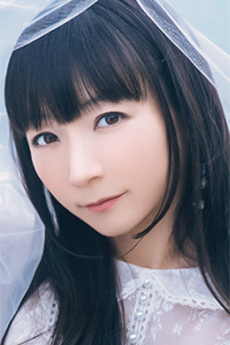
Yui Horie
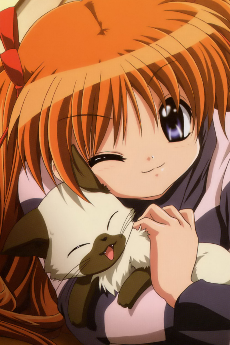
Makoto Sawatari
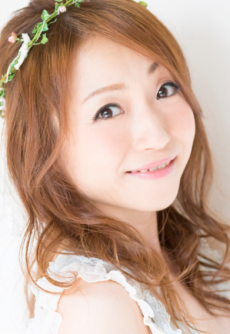
Mayumi Iizuka
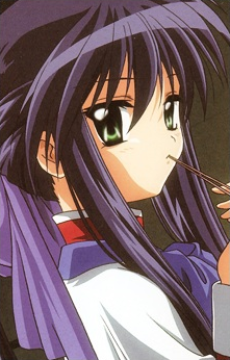
Mai Kawasumi
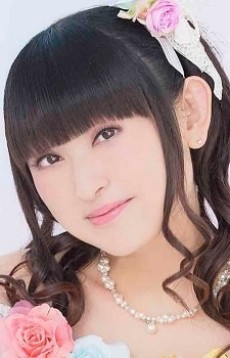
Yukari Tamura

Shiori Misaka
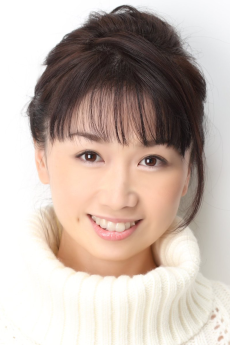
Akemi Satou

Nayuki Minase
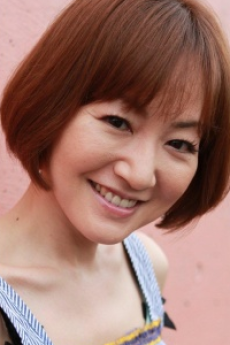
Mariko Kouda
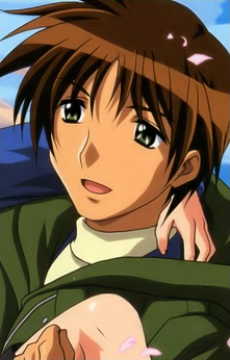
Yuuichi Aizawa
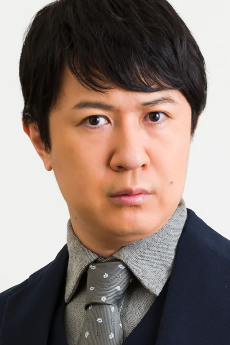
Tomokazu Sugita

Sayuri Kurata
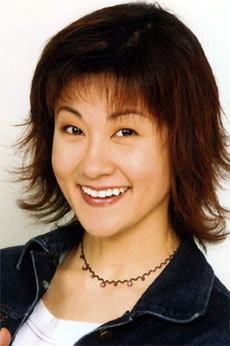
Tomoko Kawakami

Akiko Minase
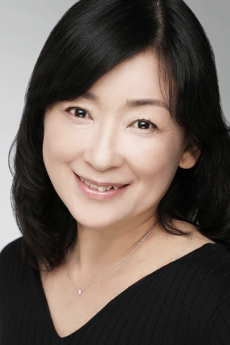
Yuuko Minaguchi

Kaori Misaka

Ayako Kawasumi
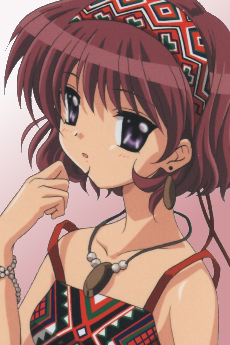
Mishio Amano
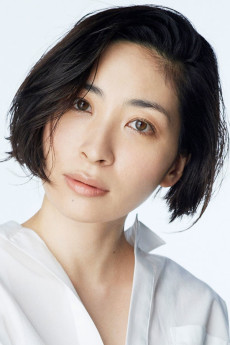
Maaya Sakamoto

Jun Kitagawa
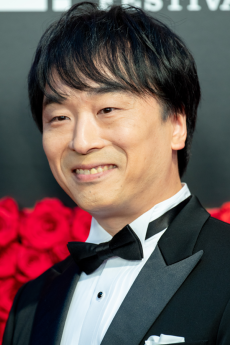
Tomokazu Seki
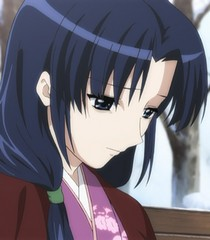
Mai no Haha

Makiko Mizogami
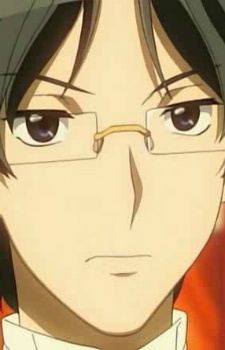
Kuze
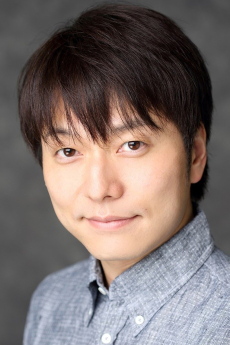
Kenji Nojima
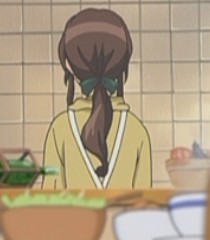
Shiori no Haha
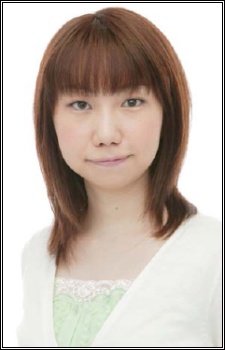
Miwa Yasuda
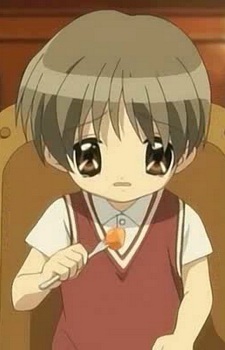
Kazuya Kurata
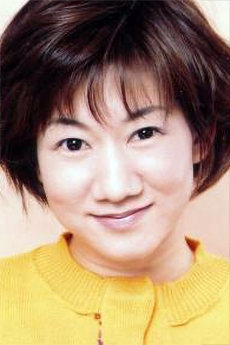
Aki Uechi
EPISODES
Dubbed
RELATED TO KANON (2006)
REVIEWS

bitchassdarius
70/100Contrapuntal narrative and solutions for the HaremContinue on AniListThe KeyAni adaptations, and harem visual novel adaptations in general, are beset by a tendency to relegate some, if not every, female character to a setup for an emotional punchline (figuratively and literally, as the narrative climaxes tend to involve the central character getting maimed, physically and/or emotionally). Once sympathy is maximally bled from the girl, she is disposed of either by narrative convenience or hasty preoccupancy with the next girl. This sadistic pattern emerges naturally from the harem visual novel, but what works in a video game doesn't translate quite well onto the TV screen. Television lacks the agency and immediacy found in games, so time devoted to developing a female character and her relationship to the MC becomes wasted once she is tossed for the next, never to have an inkling of relevance outside of "best girl" polls again.
What are some ways to remedy this narrative disease endemic to harem VN adaptations? Toei's solution was the virtue of economic storytelling. For the movie adaptations of Air and Clannad, Makoto Nakamura stripped the source materials of their character and route multiplicities, resulting in typical monogamous romance tales. Consequently, they have fairly coherent narratives, yet they feel rushed and lack the wholeness of a fully realized story. How can an adaptation avoid the aforementioned flaws of a harem VN without abandoning the harem?
There's a cafe scene in Kanon's fourteenth episode in which one of the characters asks the MC, Yuuichi, if he recognizes the song playing over the speakers. The piece, Pachelbel's Canon, is not only the show's namesake but its narrative foundation. Like a canon, in which a melody, the leader or dux, is introduced and played again later in some form(s) of contrapuntal imitation, the main approach employed in Kanon's structure is the reiteration of narrative on multiple diegetic levels. The most pronounced manifestation of the canon is written into the broad history of Yuuichi's time spent in the snow-covered city. Over the course of the show, the current timeline is slowly revealed to be a repetition of past events from Yuuichi's last visit, setting the musical duration at seven years. Kanon chooses to present the past in an impressively seamless manner. Instead of inserting flashbacks at narratively convenient moments via battle shounen-style, Yuuichi rediscovers his history through dreams, which doubly serve as pacing buffers between the cycles of his daily routine. By bookending each day with a dream of the past, the events from seven years prior are incorporated into the current, and the discrete timelines begin to harmonize until the past collapses into the present.
The first couple episodes set Kanon's rhythm; each girl is introduced into the daily routine, coming in gradually as reiterations of a similar sob story from Yuuichi's forgotten past. The schedule is thus: wake up and eat breakfast with Nayuki and Ayu; walk to school with Nayuki; eat lunch with Sayuri and Mai; skip a bit of class to meet up with Shiori outside the school; eat taiyaki after school with Ayu; foil Makoto's nighttime pranks. Yuuichi learns something new about one of the girls with each iteration: one day he realizes Shiori may have a sister in his grade; the next day, he finds out Mai's birthday is upcoming and buys an impromptu birthday gift for her. It's never really predictable which of the arcs will be explored next; the show keeps you guessing by weaving important details about different characters together. This way, each arc is developed alongside another, and the show constructs a braided narrative rather than a segmented pastiche of the MC's romantic life. Motifs shared between the character arcs include hospitalized family members, novelties gifted by the MC (especially hair bands), forlorn promises, gastronomic affinities influenced by the MC, and wishes/dreams in media res. The arcs resemble each other, and though this type of bad writing is pathological in these adaptations, it actually works, whether intended or by happenstance, in favour of the show, establishing a main theme like a canon's dux. As in a canon, where the intricacies of the leader unfurl through repetition and interplay between its followers, these characters are developed steadily at intervals in the slice of life narrative.
The slice of life segments are employed with expertise here, ingratiating the viewers with each girl at a steady, repetitive pace. Repetition is key, even in the comedy found in the short manzai routines or the character specific gags (for example, Akiko's special jam became more amusing with each introduction to a new character's palette). As the days repeat, the daily narrative begins to denature and break down as the voices play out to their natural conclusion. The different arcs are explored and conclude, and respective characters drop out (Makoto disappears; Mai and Sayuri are hospitalized; Shiori is hospitalized) but not completely since they are permutations of the leading melody, and their presence can still be discerned in the remainder of the show (e.g. the snow bunny reminds Yuuichi of Mai creating a snow bunny zoo for her mother instead of Nayuki's confession, the spectral Makoto watches over Yuuichi during the climax of Nayuki/Ayu's arc.) Nothing feels extra or wasted, and each arc comes to a satisfying conclusion.
Kanon is a glimpse at what the ideal harem VN adaptation should be. Repetition espouses the harem, allowing each arc to resonate on its own yet tethering it to a thematic principle. That being said, the faithfulness to the magical realism of the source material undermines the tone at times. Makoto's arc can be given a pass, as her overwhelming desire-turned-to-miraculous incarnation has mythological and folkloric roots. A relationship with a fox-turned-girl may be morally dubious, but the concept isn't entirely strange. Rather than the miracle itself, the real hiccup is the show's explanation, opting to introduce an extraneous character who has had a similar experience and can thus elucidate and dispel the mystical. The show also delves completely into Makoto's arc for three episodes, ruining the pacing by returning to the typical isolated arc structure of a harem in which the rest of the cast is largely ignored.
Mai's arc is the guiltiest of flouting aesthetic distance; dark, shounen-esque sword battles with invisible demons run completely perpendicular to the light slice of life school routine. The supernatural mechanics are given a half-assed explanation: Mai's healing powers somehow manifested themselves into fake beings with real, tangible consequences? The reasons are unidentified (not that everything needs to be; mystic and vague circumstances are often a given when dealing with supernatural phenomenon and are part of the appeal), but when a how is more or less provided, it's only natural to question the why. Her arc comes to a climax when she impales herself with her sword, after which she walks away completely unscathed. The scene is full of such bombast and unwarranted melodrama that the show, for the first and only time, truly flaunts its Key genetics. Thankfully, the subsequent arc, Shiori's, proves to be the most mature and profound, staying entirely grounded in realism and containing only one crying scene (of which is not even enacted by the arc's heroine). Interestingly, the final arc explores two characters, Ayu and Nayuki, simultaneously. As a sort of coda, the last episode restores Yuuichi's harem by revisiting the daily schedule, thus completing the Kanon.
As an addendum, I'd also like to praise the OP. The sweeping medium shot zoom in/outs are absolutely breathtaking; it looks as if a camera was actually used.

leesonTV
78/100Really solid SoL, few hinderances but overall, not inherently bad by any means. Good place to start SoL or KEY works.Continue on AniListThe Quest for KINO is back once more, after 2 months it's finally time to continue onward with our quest, and this time, to Kanon. A repeating melody, a repeating routine. Stuck in a dream is Yuichi Aizawa.
For context, this anime is one of KEY's first works and the second to be adapted by Kyoto Animation, coming out a year after AIR's adaptation and a year before Clannad's. I'm watching after I've already watched Clannad so I'm trying to treat Kanon as its own thing the best I can.
The main rundown of the plot is that Yuichi Aizawa revisits his old town from where his cousin Nayuki Minase has lived after a good long 7 years. It is evident to us that Yuichi has mostly forgotten about this place and this will become a running theme as we go further into this. In the first few episodes, we essentially see Yuichi starting to get accustomed to living in the town, going to school, making new friends in the forms of Kaori, Kitagawa, Sayuri, Mai, and Shiori as well as performing errands for Akiko (Nayuki's mother) sometimes when he is available. In these episodes, we're introduced to the new faces of Ayu Tsukimiya and Makoto Sawatari, two vastly different characters in their own right but important to the plot of the story all the same. Essentially, with time, Yuichi has forgotten about most of the promises and unfortunate or lively events that had occurred years ago and in the respected arcs, it's up to Yuichi and the others to find these memories for him. Whether while dreaming or thinking for himself or being brought to a place or person who can jog his memory.
Like most KEY works, there is an underlying message in all of this. Here for Kanon, it's that "memories are important", should be treasured and never forgotten. It should never matter if the memory itself is happy or sad, blocking out the memories would deal a lot more damage in the long run to you and others around you, which was what Yuichi did for the longest time. Messages to the audience can be meaningful to that person if they are struggling themselves and need motivation. I thank KEY works and Jun Maeda for implementing that into their stories.
The arcs in question consisted of the introduction arc where it builds the world around us, gives us a first look at our characters, etc. Nothing inherently too special but definitely not a bad start whatsoever, gives us details into who Yuichi and the others are. Makoto's arc was next and you could tell when an arc was starting with that character because of how it tends to hone on and focus on one specific character for quite a few episodes. I'd like to think Makoto's starts when Yuichi first meets her since we see her often afterward. Either way, Makoto's arc had me loving her character before and after, the relationship that she and Yuichi had being almost like a cat and dog while Makoto pulled her frequent antics beforehand was pretty sweet to see and had me rocking with her character immediately. However, even after Makoto was starting to lose sight of her human traits and could only do little with them, I still really loved her then because of how the relationship between her and Yuichi developed knowing she had little time left to spend with him. There was a beautiful end to her arc, sad but beautiful in that right as well.
Next was Mai's arc which was something I definitely did not expect from this anime whatsoever, action and almost shounen-like scenes for 5 episodes straight with a good backstory and explanation to boot. This is my favourite arc because of Mai's enigmatic but lovable character, the arc's entire intensity, and because of the message of "killing the inner demons that lie within you" so to speak.
Shiori's arc wasn't necessarily that big of an arc but it did highlight more of Shiori's and Kaori's characters and what they were dealing with as a whole. This arc I had a problem with just because of how it was treated. It felt too fast, the pacing wasn't as great as all the other arcs and on top of that, the arc just ends abruptly with a note to Yuichi and nothing else after. Also, I don't think 3 episodes was even enough to get into what Shiori and Kaori were really going through. This arc wasn't bad by any stretch of the imagination because I really did like Shiori's character as a whole but it was definitely not to my taste, I wasn't heavily affected by what it had to offer.
The final arc was a mix between Nayuki and Ayu. This arc had me going through loops but is an ode to everything that had been shown before me and what I had learned in a solid ending to the series as a whole. I do love Ayu's charming character, the relationship she has with Yuichi and Nayuki's enthusiastic and encouraging qualities are charming too. Even in the down periods, sympathy was there for those characters where they definitely needed it which brought the mood back up and Kanon delivered on selling those characters to me thanks to how Kanon wrote these characters into existence. The redemption of Yuichi at the end of the series was satisfying and did put a smile on my face once I was finished.
The OST used was warm, calming, and comforting, almost like a contrast as to how the town was portrayed to us in Kanon, being cold in the winter. The use of musical terms in the titles of episodes was also a nice touch, linking back to Episode 14 and Sayuri mentioning how 'Pachelbel's Kanon' was a piece of music that had the same melody but changed production and instruments slightly as the song progressed. 'Kanon' for the title of the series makes sense since Yuichi's daily routine was essentially the same but changed drastically for each arc.
The OP for Kanon was much like what I described the overall OST being like, calming and comforting with the vocals carrying a lot of weight. In contrast to that though, the ED was bouncy being more akin to a 2000s dance track but also did carry some weight with the vocals.
The visual style for Kanon was what I expected for mid-2000s KyoAni anime to be like, they were only just mastering this new wave of animation at the time and especially so with AIR. I do like the art style of Kanon, it would have been similar to AIR and the other KEY works considering their art style at the time was definitely very similar to one another and I find no issues with this art style. People like to make complaints about the eyes as you would probably know from Clannad, but it doesn't bother me in the slightest if they have big eyes or not since the art style itself is fine as is.
So overall, how do I feel about Kanon? Well, first and foremost, did it resonate with me? I hate to report but, it did not, while I do understand Sayuri's and Shiori's struggles since... bit personal but I had to deal with a 'coping mechanism' like that myself when I was going through a rough time. Other than those little things, nothing immediately stood out to me as being personally meaningful in any sort of regard, hence it doesn't resonate with me much.
Was the message in the details strong? Yes, I believe that "your memories are important" is a testament to growing and improving on one's self and that was the message that they used of Kanon and what they had meant by it, very meaningful and could apply to anyone.
Did I enjoy it for the duration of the time? Yes, I wasn't at all disappointed by any of the arcs or episodes within those arcs whatsoever, there was always something to enjoy. With the tiny exception being how they handled Shiori's little mini-arc and how that ended, it did ultimately make sense however I just wish that it had been adapted a lot better from the original source material being the visual novel, as I had talked to a KEY aficionado about it and even they said the adaptation for that arc lacked a lot.
Do I like the characters? Most, yes. Each character had their unique charms, quirks, lovable qualities, and low points that had you sympathising with them. I'm still unsure where to place Kaori since she is an "eh" sort of character, I don't hate her but I can't say I like her all too much. Kitagawa was mostly used for comedic effect as well and didn't have all too much to his character at all so I'm "eh" on him too.
In conclusion, I can say that Kanon is definitely a solid SoL and a good one to get into when you're willing to start diving into KEY works, this should be your first option if you're wanting to get into KEY but don't know where to start. Aside from the issues with pacing and abrupt endings with little to no clarification, I did enjoy watching Kanon quite a bit and it has almost impressed me as much as Clannad S1 did. However, I still do prefer Clannad S1 over Kanon simply because when reflecting on the two, I had a much more enjoyable experience with Clannad S1 and love the characters there a whole lot more than here, Kanon's characters are good but I really do prefer Clannad's.
For these reasons, I didn't feel as though Kanon fit the bill for where I put Clannad S1 at an 8, so it only really made sense to bring it down to a 7 and I feel as though I'm happy with this score because it still means I enjoyed the anime but did notice the problems it had and that it couldn't necessarily compare to similar anime that I had watched and also enjoyed, so I felt a high 7 here made the most sense to me.

YuiHirasawa39
84/100A story of shared connections and re-lived memories - and a redemption of the original source workContinue on AniListMAJOR SPOILERS BELOW – 1999 VN, 2002 ANIME, 2006 ANIME
Kanon 2006 is the second adaptation of the 1999 Visual Arts Key novel. This game has had not only one, but two adaptations, all within the same decade. I first viewed the Toei-produced, 13-episode adaptation, a series that I appreciated for its source material accuracy and despite its lacking art style. And finally, I have now finished the KyoAni 2006 adaptation, which will form the substance of this review.
First, I’d like to recap my reading of the game’s storyline. Kanon follows a typical branching plotline, a VN mainstay. Each of the five routes (Makoto, Mai, Shiori, Ayu, Nayuki) are mutually exclusive. While no source material explicitly treats it as such, the theory of “one true route” (Ayu) is present here. Unlike its successor, Air, in which the “one true route” is made incredibly evident, things are less so here in Kanon. Another stalk difference between the two games are the sheer number of routes – five in Kanon (six if you count Sayuri, which you totally should), and only three in Air (discounting Summer, which is no more than a kinetic novel) and the final Air route (Misuzu, with relatively little overlap with Kano and Minagi). I’ve heard Air praised for its focus on more detail in less routes, in which Kanon supposedly exemplifies the opposite. However, I feel that the integration between routes is actually better in Kanon than Air – which, of course being a matter of personal preference, also fits Kanon’s story better.
So, the routes itself. I’ve explained their content previously, so I think it’s likely best to jump to the climaxes here. In the game, completing any route (and even the bad ends, unbelievably!) involve a common scene, in which Ayu appears for the last time to Yuuichi and announces that she has found her lost item, after which she disappears. In the game, most bad ends occur directly afterward, or in the case of any successful completion of the other four, the corresponding ending plays out. The only case in which this scene does not occur is Ayu’s route itself. Like I mentioned earlier, it’s not exactly a mystery that her route is the “true” one, but I actually feel that this scene’s inclusion has a bit of a deeper meaning, one that we’ll get into next.
I’ll reference my review of Kanon 2002 for its contribution to the franchise next. Toei, having only 13 episodes to work with, focused on three of the routes’ completion in three consecutive episodes – Mai, Shiori, Makoto in 8, 9 and 10. Interestingly enough, Nayuki and Ayu’s routes are completed somewhat simultaneously at the end of the show (albeit without the former’s romantic element). As I mentioned in that review, I felt that Toei decided upon this as a consequence of Ayu’s third wish – Akiko’s healing rather than Mai’s demons, Shiori’s health, and Makoto’s humanhood.
Kanon 2006 takes a bit of a different angle, which will become far more apparent later on. From the very beginning, I was struck by just how integrated this interpretation was. Even from the first few episodes we see all of the cast appear. Thanks to the extra length, KyoAni chooses to develop more of the routes simultaneously, all up until around episode 8, where Makoto’s route becomes the focus until its conclusion at episode 10. Mai’s route develops and ends at episode 15, which is followed by Shiori’s at episode 18. Again, we see simultaneous development of Ayu and Nayuki’s arcs, which carry on until episode 24. At first glance, this seems extremely similar to the 2002 adaptation, albeit with more episodes dedicated to each heroine, but I actually feel that this is not the case, for several reasons.
Like I mentioned, I feel that the 2006 takes a much more integrated approach to the VN’s conclusion. In the source material, none of the routes can coexist, with the only similar element being the aforementioned Ayu scene. I feel that KyoAni chose to use this scene as basis of their integrative interpretation. Significantly, each of the arc “endings,” in 8, 10, and 15 – are left somewhat uncompleted. They are uncomplete not in the technical sense but in the speculative sense. Even since playing the game for the first time, I’ve read Ayu’s final wish as being the single force that brings about the successful route conclusion that Yuuichi desires. In Makoto’s arc, it is her humanhood and reversal of abandonment. In Mai’s, it is the defeat of internal and external demons. In Shiori’s, it is the restoration of something deeply hoped for. In Nayuki’s, it is the saving of a family and the return of unrequited love. Ayu disappears after finding her lost item because her final wish has been achieved: Yuuichi’s happiness within whatever route the player completes.
However, the 2006 adaptation leaves these up to question. None of the first three heroines are brought to the same quality of conclusion as they should be. Makoto is reconciled with Yuuichi but her personhood remains in question. Mai’s external demons may be gone, but her internal demons are being pushed out. Shiori is reunified with Kaori but her health remains in question. Everything is held in suspense as the final few episodes play out – to whom will Ayu’s final wish go to? In the case of the 2002 anime, I argued it actually went to Nayuki, effectively saving Akiko’s life. In the case of the 2006, it is tantalizingly, delightfully unclear right up until the end. Even her final wish – after Yuuichi refuses to grant her initial request to forget about her – is a line lost to the wind.
And what is the conclusion? The final episode. The episode of “Key Magic” that the internet so seems to hate. In this case, however, I find it much more satisfying than either the original material or the game at all. Indeed, we don’t know what Ayu’s final wish actually was, but we expect it is, as before, for Yuuichi’s happiness, which involves the redemption of all he cares about. And it is for that very reason why this adaptation is by far a superior piece of media than the 1999 VN. The true ending is this general redemption, which itself redeems the original game. I feel that this very realization is what induced the gut-wrenching feeling that I experienced during the climax, and one way in which the 2006 interpretation is far superior to the 2002, which sought to come to a crudely-similar conclusion in its OVA.
How, then, does this come about? In Makoto’s case, her humanhood is restored through the appearance of the human Makoto, an interpretation entirely missing from both the game and the 2002 adaptation. Makoto’s acceptance of the desperate Yuuichi into her home mirrors his acceptance of Makoto the fox into his house as a child. In Mai’s case, she comes to closure with her own thoughts and pushes out the demons that prevent her from accepting Sayuri. Furthermore (and I kind of like this unconventional interpretation) it may also be suggested that her tears are what revive Ayu at the end of the show. And of course, in the case of Shiori, she regains not only her relationship with her sister, but also her meaning in life and desire to preserve rather than sacrifice it. In the 2006 adaptation, it’s incredibly obvious that Ayu’s arc brings this all together. Like I mentioned before, this series is excellently integrated.
And that of course brings us to discuss the final two arcs – Nayuki and Ayu. They, too, are intimately connected. Both Nayuki and Yuuichi suffer harsh loss of those they care about, each feeling that their memories are being pushed out in the cruelest of fashions. And it’s only here that things become slightly confusing. Yes, Nayuki’s arc is the incestuous one, which Toei carefully toes around throughout its 13-episode series and brings to highly-awkward conclusion in the OVA. KyoAni, on the other hand, does better. It frames the paradigm of unrequired love as not romantic love, but human support through suffering. Yes, the show makes it clear that the tension is still there, but as in every route outside Ayu’s, that it is one-sided. It’s actually in Nayuki’s route that I criticize this series the most. I feel that Akiko’s accident and its influence on Nayuki was downplayed by Yuuichi’s obsession with remembering Ayu. The seven years of rejection is pushed to the side, and dare I say it, too easily resolved with their reconciliation at the end of the penultimate episode.
Up to now, this review has failed to follow my usual style, so I’ll revisit some of the normal elements here. The music, to nobody’s surprise, is killer. Although I appreciate the effort of Toei to create a new OP and ED, “Last Regrets” and “Kaze no Tadoritsuku Basho” are absolutely the correct choices here. Maeda’s compositions, also from the original game, are prevalent in full, along with several excellent arrangements. The animation, from the mid-2000s era of KyoAni, is absolutely delightful, and absolutely extinguishes any of the meme accusations of the 2002 adaptation.
I would also here like to give some appreciation for the voice acting. The cast remains mostly the same from the 2002 adaptation. Yui Horie, dare I say it, performed even better this adaptation as compared to the last. However, the largest and most important change was the altering of Yuuichi’s voice actor to the esteemed Tomokazu Sugita, better known for his recent appearance as Kyon from The Melancholy of Haruhi Suzumiya. Sugita, with no disrespect meant, was much better suited for this role, and really helped to bring more life into who was formerly just a faceless VN protagonist.
Finally, some loose ends to tidy up. I don’t want to finish this review without giving thought to some unique takes that KyoAni made on the story. Firstly, the roles of Amano and Kaori as supporting characters are much better here than in the 2002 adaptation. The introduction of the human Makoto, while a bit of an unexpected and perhaps unnecessary move, is characteristic of what I would expect from the studio at the time. Finally, its general adaptation of what was originally an erotic VN into a meaningful, heart-wrenching drama was what sold this anime for me.
I talked a little bit before about redemption, and I guess now is the time to say that redemption is what characterizes this series’ development and conclusion. I feel like episode 14, which is perhaps the best single episode of any show I’ve ever seen, illustrates this best. With Pachelbel’s greatest work playing in the background, Sayuri explains the principle of a Canon and how its repeating imitations vary from, yet follow after, what came before. In this adaptation, the Canon is rebuilt – each of the heroine’s arcs are redeemed into the flow of life that Yuuichi so desires. I find it beautiful and oddly moving.
So how I do I conclude this? Yes, this show is excellent. No, I have not yet fully figured out the question I posed in my Kanon 2002 review – what have become of the memories? Again with the extremely odd omission of Shiori, each of heroines share experiences with Yuuichi seven years ago. In the game, these memories seem to be mutually exclusive. Do these memories really exist? Or are they being spontaneously generated while Yuuichi deepens his relationship with each of his friends? I have yet to discover how KyoAni addresses this issue, but the hint I currently have comes within the remnants of the dream that we are given brief glimpses into. Is the dream Yuuichi’s reality? Or has this final, redemptive ending just one from which he’s about to wake up?
“Dream. I was in a dream.”
SIMILAR ANIMES YOU MAY LIKE
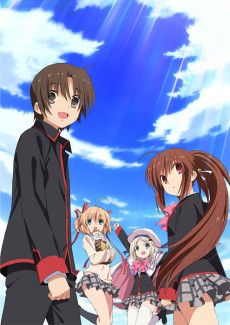 ANIME ComedyLittle Busters!
ANIME ComedyLittle Busters!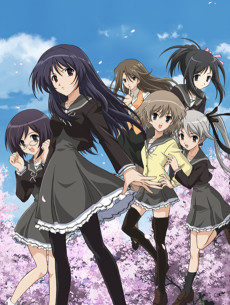 ANIME DramaMyself ; Yourself
ANIME DramaMyself ; Yourself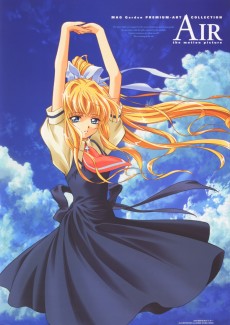 MOVIE DramaAIR (Movie)
MOVIE DramaAIR (Movie) ANIME ActionAngel Beats!
ANIME ActionAngel Beats!
SCORE
- (3.8/5)
TRAILER
MORE INFO
Ended inMarch 15, 2007
Main Studio Kyoto Animation
Trending Level 1
Favorited by 793 Users


